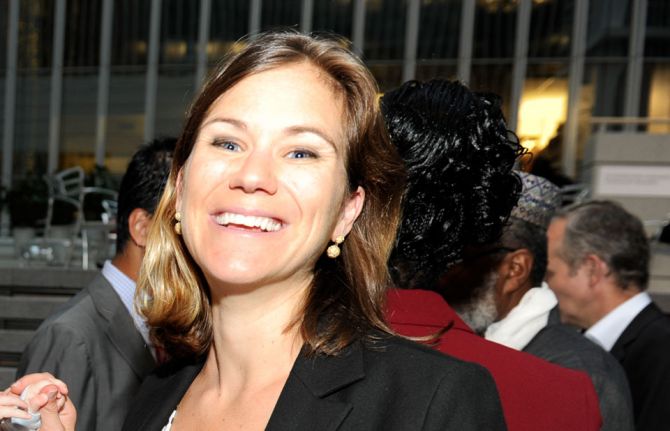
Feature Story
“To end AIDS, we need innovation, shared responsibility, mutual accountability and global solidarity”
22 July 2012
22 July 2012 22 July 2012
UNAIDS Director, Regional Support Team, Eastern and Southern Africa, Professor Sheila Tlou speaking at a plenary session of the XIX International AIDS Conference. Washington DC, 23 July 2012.
Credit: UNAIDS/K.Cleponis
At the plenary session titled Turning the Tide in Affected Countries (leadership, accountability and targets), UNAIDS Director, Regional Support Team, Eastern and Southern Africa, Professor Sheila Tlou, took stock of the progress made in the AIDS response to date and pointed out the challenges remaining to overcome the AIDS epidemic.
According to Professor Tlou, much progress has been made in the AIDS response. The world is on course to achieve elimination of new HIV infections among children and it is on course to put 15 million people on antiretroviral treatment. Access to HIV treatment in Sub Saharan Africa increased more than 100-fold in less than a decade. In 22 countries, annual new infections declined by more than 25% between 2001 and 2011.
To end AIDS, we need innovation, shared responsibility, mutual accountability and global solidarity
UNAIDS Director, Regional Support Team, Eastern and Southern Africa, Professor Sheila Tlou
However, challenges still remain as punitive laws, stigma and discrimination, gender inequality, violence against women and human rights violations are hindering the AIDS response. Proferssor Tlou spoke about the key requirements for turning the tide. “To end AIDS, we need innovation, shared responsibility, mutual accountability and global solidarity,” said Professor Tlou.
Other key factors to turn the tide of the epidemic according to Professor Tlou include the development of evidence-informed and rights-based HIV responses; enactment of laws that facilitate effective HIV responses; addressing sexual and reproductive health needs of women and girls; Gender equality and involvement of men, and the use of the expertise of communities and people living with HIV.
Related information
Related information
Related
 A tribute to Maeve Kennedy Townsend McKean
A tribute to Maeve Kennedy Townsend McKean

09 April 2020
 UNAIDS is awarded the Science and Medicine Award at the 25th Annual Steve Chase Awards
UNAIDS is awarded the Science and Medicine Award at the 25th Annual Steve Chase Awards

12 February 2019
 AIDS care in the Californian desert
AIDS care in the Californian desert
12 February 2019
